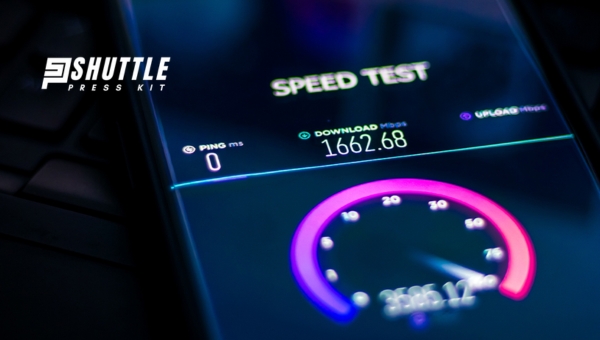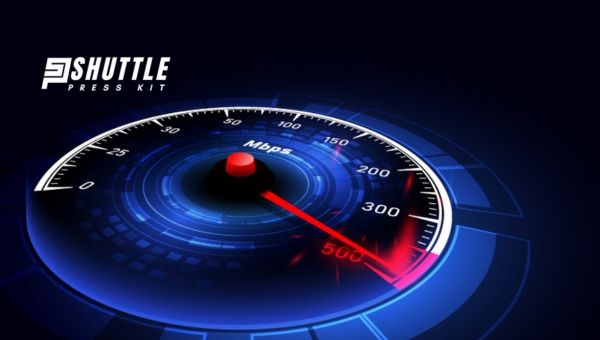Have you ever wondered if your internet is fast enough for what you need? Finding the right Internet Speed can be like searching for that perfect pair of shoes – it has to fit just right, or you’ll end up with a day full of blisters. Let’s lace up and find your ideal internet connection, one that won’t leave you lagging behind!
When looking at how much speed I need, it’s all about what I’m doing online. If I’m just sending emails or scrolling through social media, a basic plan will do the trick. But if I’m gaming, streaming movies in high definition or working from home with large files – I’ll want something faster. It all boils down to my online activities; simple tasks require less speed while complex tasks demand more juice!
Determining the Right Internet Speed for Your Needs
Choosing the appropriate internet speed can significantly enhance your online experience, from seamless streaming to efficient remote work. Understanding how much Mbps (megabits per second) you require is crucial, as it can vary based on your activities and the number of devices connected.

Here are key guidelines to help pinpoint the necessary internet speed:
- Evaluate Your Usage: Reflect on whether your internet activity is light (browsing, emailing) or heavy (4K streaming, gaming). The intensity of use helps determine the baseline speed needed.
- Streaming Requirements: Services like Netflix suggest having at least 5 Mbps for HD quality and 25 Mbps for Ultra HD content. Households with multiple people watching different streams simultaneously might need higher speeds.
- Gaming Specifications: Online gamers should consider not only download speeds but also upload speeds and latency. For a smooth gaming experience without lag, higher speeds are beneficial.
- Multiple Devices: It’s not just about what you do online but also how many devices connect simultaneously. More devices mean more bandwidth is required to maintain high-speed access for all users.
- Future-proofing: Opting for slightly higher speeds than currently necessary can accommodate future technology and additional devices without necessitating an immediate plan upgrade.
By carefully evaluating these aspects, individuals can select an internet service plan that aligns well with their needs while ensuring efficient and reliable connectivity for all household activities.
Also Read: Starlink Volcano Mount Guide: Easy DIY Installation Tips
Understanding Fast Internet Speeds
In today’s digitally connected world, internet speed is a crucial element that affects everything from streaming quality to download speeds, and it is vital not only for professional tasks but also for leisure activities at home.

Here’s a simplified breakdown of what constitutes “fast” internet in the current technological landscape:
- Defining Fast Internet: Traditionally, any internet speed over 100 Mbps (Megabits per second) is categorized as “fast.” When you reach or exceed speeds of 1 Gbps (Gigabit per second), these plans are often referred to as “gigabit” services.
- Who Needs Gigabit Speeds?: Though the average user might not require gigabit-level speeds currently, certain user groups can greatly benefit from them. This includes tech enthusiasts, gamers, content creators and streamers, as well as large households with multiple simultaneous users.
- Download Speed: Download speed pertains to how quickly data can be pulled from the internet to your device—important for streaming or downloading files.
- Upload Speeds: Upload speed refers to how swiftly data can be sent from your device to the internet—crucial for uploading content or video conferencing.
- Realities of 25 Mbps Speed: While a 25 Mbps connection was once adequate for many households, evolving digital needs due to more advanced online applications and higher-quality streaming requirements have shifted perceptions.
Understanding what makes an internet connection “fast” helps assess personal or business needs against current offerings with better insight into futureproofing one’s connectivity solutions amidst rapidly growing digital demands.
Also Read: Starlink vs HughesNet: Which Wins the Satellite Battle?
Optimal Internet Speeds for Smooth Streaming Experience
Seamless video streaming, whether catching up on the latest TV series, movies, or live events, requires a stable internet connection. The quality of your viewing experience heavily depends on your internet speeds.

Here are the key points to understand the relationship between streaming and internet speed:
- For Basic HD Content: A minimum download speed of 3-5 Mbps is essential for watching videos on platforms like Netflix or YouTube without significant buffering.
- 4K Ultra HD Streams: To enjoy content in crisp 4K resolution, your connection needs to jump to a minimum of 25 Mbps. However, to ensure smooth playback and accommodate potential network fluctuations, higher speeds are advisable.
- Multiple Devices: If your household consists of several devices streaming simultaneously, consider speeds upwards of 50 Mbps. This precaution ensures that each device receives adequate bandwidth to maintain high-quality video without interruption.
- Consider The Network Setup: Using a wired Ethernet connection can offer more stability and faster speeds compared to Wi-Fi. Placement of Wi-Fi routers and the removal of physical obstructions can also significantly impact the streaming experience.
Adapting these guidelines will help maintain a consistently smooth and enjoyable streaming experience across all devices in your home.
Also Read: Starlink Dimensions Simplified: Nail Your Satellite Setup
Optimal Internet Speeds for Smooth Gaming Experience
When diving into the world of online gaming, ensuring you have the right internet speed is crucial to avoid lag, interruptions, and download delays that can affect your performance and enjoyment.

While the minimum internet requirements can vary based on individual needs and household usage, here are streamlined bullet points to guide you on the ideal speeds for an optimal gaming experience:
- Minimum Requirements: A baseline of 15+ Mbps download speed is recommended if you’re gaming without significant others using your internet simultaneously. However, this might not suffice for higher upload speed demands.
- Recommended Speeds: For dedicated gamers or those frequenting latest AAA titles requiring substantial downloads (e.g., “Call of Duty”, “Starfield”), opting for 100 Mbps or greater in both download and upload speeds will enhance your gaming sessions significantly.
- Understanding Latency: Beyond just speeds, low latency plays a key role in responsive gameplay. Achieving a low ping rate — typically under 100 milliseconds (ms) — can make a noticeable difference in online games.
Following these guidelines will help ensure you have a more seamless and enjoyable online gaming experience without the common pitfalls related to inadequate internet speeds.
Also Read: Low Capacity vs High Capacity Starlink: Optimize Your Choices
Frequently Asked Questions
What factors determine the internet speed I need?
Your needed internet speed hinges on your online activities, such as streaming, gaming, and the number of devices connected simultaneously.
Is higher internet speed essential for gaming?
Yes, for a smoother gaming experience, particularly for online multiplayers, higher speeds reduce lag and improve connection stability.
Can slow internet speed affect remote work?
Slow speeds can hamper video calls, file uploads, and access to cloud services, impacting productivity and collaboration in remote work.
Does streaming in 4K require more internet speed than HD?
Streaming in 4K demands a faster internet connection compared to HD to ensure smooth playback and avoid buffering.
Conclusion
Determining the ideal internet speed for your needs hinges on various factors, including the number of users, types of activities, and the devices connected to your network. For basic tasks like browsing and email, speeds of 1-5 Mbps are generally sufficient.
A household of multiple users simultaneously engaging in these activities may require speeds of 100 Mbps or more to ensure a smooth, frustration-free online experience. Considering future needs is also prudent as internet usage and the demand for higher bandwidth continue to grow.
